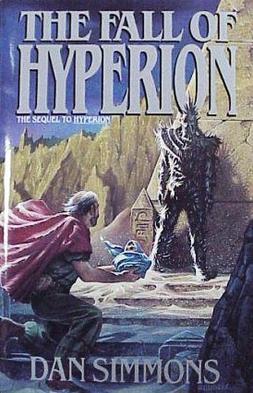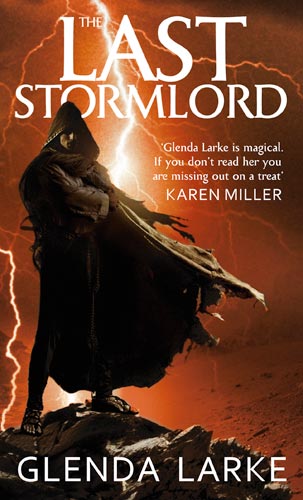 The Fall of Hyperion by Dan Simmons
The Fall of Hyperion by Dan Simmons
3.5 out of 5 stars
Read in January 2009
Warning: Spoilers
I liked this novel better than the first installment, Hyperion, and it probably rates 3.5 stars. After I sleep on it, I may up my rating to four stars, but for now it will sit comfortably at three stars.
We return to the story very nearly where we left off. Thankfully, Dan Simmons abandoned the Canterbury Tales frame tale format and returned to a more linear point of view. Linear is probably not the best word to fit a tale that spans time and space and the places that exist beyond and between both.
The Titanic struggle of survival of the human race unfolds in spurts through the dreams of Joseph Severn, the reincarnated cybrid that was formerly John Keats. His dreams are the real-time happenings across the galaxy, mostly focused on Hyperion, the stage for the final battle between man and machine.
It’s not until late in the novel that we learn the TechnoCore’s true plans to further enslave humanity to spur its evolution of the Universal Intelligence (an uber AI that is their created or perfected god). The TechnoCore tricks the Hegemony to committing two-thirds of its military to the Hyperion system and fakes a massive Ouster invasion on several key Web worlds. Their goal is to force the humans into the labyrinths, infecting them with the cruciform parasites (which resurrect and reconstruct the dead infinitely, eventually reducing the host to mental retardation but leaving the body and brain intact). The TechnoCore uses human brain/nerve cells for raw computing power and the UI will use the billions trapped in the labyrinth eternally, dooming humanity to slavery and imbecility.
Severn/Keats learns the location of the TechnoCore’s hidden home and relays the information to the CEO of the Hegemony. With only minutes to go before the TechnoCore unleashes a planetary purging via deathwand device aimed at Hyperion, the CEO orders the Web of farcasters destroyed (simultaneously across the galaxy), cutting off all travel and communications, but also destroying the TechnoCore’s haven. Humanity is left to recover without the crutches of TechnoCore technology and in some cases stranded on planets with little or no arable land. Humans learn to adapt and survive.
The irony or pun or twisted morale of the story seemed to hinge upon a literary device referred to as deus ex machina which I had to research to understand. Simmons took the translation quite literally and applied it unforgivingly to his creation.
I was relieved that Rachel was “cured” of her Merlin’s disease but disappointed in the revelation of her alternate identity.
 The Eyre Affair by Jasper Fforde
The Eyre Affair by Jasper Fforde








